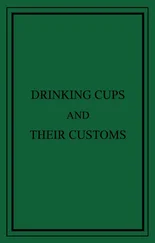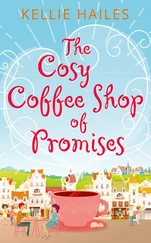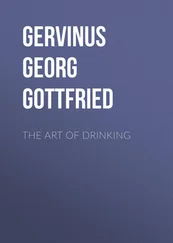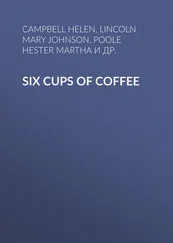“Nice girl. I like Dori-ka. I don’t want people to put Senf and catsup all over Dori-ka like they do on TV.”
Whenever he and Doris had watched news footage of the sit-ins in Greensboro, they’d seen whites as young as the Negro students squirting mustard and catsup all over the protesters. It had amazed her that the students could sit so still, taking it, occasionally wiping themselves off, but never shouting or hitting.
“And Dori-ka,” he said, “I am businessman. I think of things from business perspective. If you do what they say called ‘integrate,’ what will everyone here do?” He waved his hand beyond the window, to where Amos Henry cut meat in his butcher shop, where Mozelle Gordon ran the little store that sold sundries. And there, also in his gesture, was Thomasina Edison, who did everyone’s hair, her hot comb heating in its little pod, waiting to do its Saturday-night miracles. “All these business,” Stutz said, “all of them Negroid. All,” he said, placing his hand on his heart, “but Stutz.”
“Now, when someone need hairs cut, they go over there . When they need meat cut in half, they go over there .” He pointed out the window as though outside lay the seven wonders of the world. “When you ‘integrate,’ I predict, everyone will go to white, none to black. Why? Because white America will build big palace. They will say, ‘Why go to Negroid store? Little-bitty tchotchke store? We have everything here!’” Then, with a flourish of his hand, he said, “No more Negroid store. Poof. All gone.”
She didn’t think that would happen. Couldn’t imagine anything like it. But even though Stutz didn’t really understand, she felt something like affection for him. When the Red Skelton Show theme music began playing, she knew it was time to leave. She stood in front of him, and though both made as if to hug each other, they didn’t.

A WEEK later, after Wednesday-night Bible study, Doris decided to ask for a meeting with Reverend Sykes. Her mother would take at least half an hour to make her rounds, hugging and God-blessing everyone in sight, and her brothers could spend all night outside playing stickball in their winter coats.
“Of course, Doris,” Reverend Sykes said when she asked to speak with him. “It’s been a while since we had one of our talks.” He gathered his Bible notes from the pulpit and led her to his office: a hymnbook closet that had been only half cleared of books. He gestured for her to take the seat opposite his and made a little laugh. “Remember when you read some book about digestion, then asked why stomach acid didn’t kill Jonah when he was in the belly of the whale?” He smiled, remembering.
It was true. Doris used to want to know why it was fair for David to have Bathsheba’s husband killed, just because he wanted to marry her himself; why Jacob got to have Esau’s birthright, when Esau’s only fault — as far as Doris could see — was that he was hairy.
“This isn’t a question,” Doris said, “though it involves a Bible story. It’s more of a theory.”
Reverend Sykes made a mock-impressed face at the word “theory.”
“Well, I was thinking about how Jesus turned two fish and five loaves of bread into enough to feed five thousand people, showing how when you feed a physical hunger, folks are more receptive to hearing a message that’ll then feed their spiritual hunger.”
“Amen,” Reverend Sykes said, nodding. “Couldn’t a said it better myself. A spiritual hunger that needs to be fed by the Word of God.”
“But Reverend Sykes,” Doris said, “what if a thousand had to eat their bread and fish in the valley, while the rest got to eat theirs up on the hill? That’s what’s happening now. We colored have to eat our fish and bread in the valley. The white folks get to eat theirs up on the hill.”
He rubbed his eyes with his fingertips. “Well, it seems like you’ve got a decision to make, Doris. Do you wanna starve, but keep your house with a hilltop view? Or do you wanna live in the valley with a full belly? Hmm? And what’s so wrong with the valley, Doris? The Lord says, ’Consider the lilies of the field, how they toil not, neither do they spin…’”
“But Reverend Sykes,” she said, voice quavering, “what if the valley is flooded? And why should you have to choose?” She was already near tears, and if she continued in this vein, whatever she said would surely start her crying.
“Doris,” he said. He reached across the desk and placed her hands in his, holding them solemnly. “This is about those marches and sit-ins, isn’t it? Now I know there’s Dr. King out there,” he said, making the name sound like a fad, “calling himself preaching . But do you want to be with all those girls and boys who’d go to jail in a second? Not even caring how much their mamas and daddies have to pay to get ’em out. Do you want that?”
The answer seemed to be no, but it got caught in her throat, like a hummingbird. She finally said, “They’re only asking to be treated equal with white folks. Like how God would treat them. That’s why the other churches support the sit-ins.”
Reverend Sykes let go of her hands and kicked his feet up on the desk. “And these other churches. I suppose they’re Baptist and A.M.E.? Now, them folks think you can sin on Saturday night and sing hungover with the choir Sunday morning. Did you see that mother of that unsaved family that came in on New Year’s? That woman! Coming to church in a red dress, of all things.”
Doris hadn’t noticed any such woman, she’d been so surprised to see Olivia in the pews. But she looked hard at the Reverend and said, “Yes. I remember. The night the Lord was supposed to come.”
“TODAY,” Livia said, “you’ll be sick.” This was the Tuesday after Doris had spoken with Reverend Sykes. After Mr. Fott’s class, Livia took Doris by the crook of her elbow, steering her away from third-period French.
Livia played hooky all the time, and though Doris knew this was what Livia had in mind, knew it was wrong, there was something thrilling about riding in a car with someone besides her parents, going someplace she knew would not be church.
“I can’t,” Doris said, though she knew she would.
“Alice is already waiting in the car.” Alice, another girl in History class, spoke to Livia because speaking to Livia always got you noticed. Alice had begun to dress like Livia, one time even wearing a pillbox hat to class.
Livia drove a turquoise-and-white Mercury Park Lane, a far cry from Doris’s father’s Hupmobile. They saw Splendor in the Grass at the Vogue, Livia sitting in the colored balcony with Doris. Finally Alice came up, too. It was the second movie Doris had seen since her family had joined the church. The first had been a French movie she saw for extra credit, the one time she’d gone against the church’s teachings without confessing what she’d done.
They drove from St. Matthews to Germantown, covering the city. When they got to Newburg, Alice let out a long sigh. “I bought my dress for the Winter Dance,” she said, turning to Livia. “It’s a long satin sheath with roses on either side of the straps. The straps are that minty green color everyone’s wearing, but the rest is one long flesh-colored sheath. Mama would die if she saw it, but what’s bought is bought.”
“Flesh colored?” Doris said.
“I know! Scandalous!”
“You mean, the color of your flesh?” Doris said.
“Well, who else’s would it be?” Alice looked to Livia as if searching for a sane opinion.
“You mean your flesh color. And Livia’s and Mr. Fott’s. Not mine.”
Читать дальше













